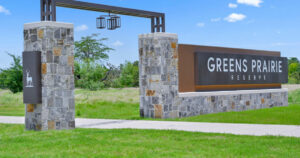College Station Schools Athletics-Related Bond Propositions up for Vote Again
College Station, a city located in Brazos County at the heart of the Texas Triangle, is revisiting the discussion on athletics-related bond propositions for its school district after the similar proposition was defeated in the November 2023 voting session. This comes amidst a broader debate over how best to fund and upgrade facilities in the school district.
The issue has returned to the ballot, with proposed renovations highlighting the importance of athletic aesthetics for student-athletes. The propositions constitute an estimated $53.4 million investment in athletic facilities at both the A&M Consolidated and College Station high schools. Early voting begins this Monday, with the final vote to be called on Saturday, May 4.
A recap of the November defeat
Although the previous version of the proposal was defeated last November, the renewed propositions have two subdivisions. Proposition A is worth $40.2 million and proposes to renovate and expand the stadiums at A&M Consolidated and College Stadium, along with the Consolidated field house. Its counterpart, Proposition B, is worth about $13.3 million and is set to implement turf for the baseball and softball fields at both high schools, including LED lighting.
Despite carrying an identical proposal description as last November’s election, district officials insist on the need for these items. The district’s Superintendent, Tim Harkrider, points out the close call in the previous voting session, saying the need remains vital.
Community response to the proposed bond
Despite the resolve of the district officials, some residents think differently. Nic LoGalbo, a resident of College Station, says “they didn’t really take the time to understand why the taxpayers were saying no.” Lloyd Davis, another resident, suggests a more successful approach would have been to pare down the list, isolating only items related to safety and serious maintenance issues for voters.
There’s a broad consensus among district officials and residents that the district must not neglect its financial status but should be prudent in its budgeting. Nevertheless, the proponents of the bond clearly describe the athletic-related bond propositions as needs, not wants.
Bonds for athletic development
Furthermore, they emphasize the role of athletics in the overall development of students. Therefore, the investment should be seen as one that contributes to academic, athletic, and personal development. Providing a more compelling argument, Consol’s head athletic trainer, Elli Dinkmeyer, says kids go to school every day because they love their extracurricular activities, and athletics is a significant part of that puzzle.
The district administration has also outlined the potential savings and revenue that the district can accrue from approving the bond. They project upwards of $213,000 per year saved on maintenance costs if the district transitions to turf fields. Also, the district could generate extra income by hosting non-district tournaments, playoff games, and renting its fields for select team practices and games.
Looking forward
However, the fate of the propositions rests in the hands of the voters in the upcoming elections. If passed, opponents of the bond consider it an extravagance, even as supporters believe that it will bring about the necessary improvements and maintain College Station’s status as a hub for academic and athletic excellence.








